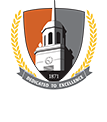Summer 2025 applications are closed
The Social Justice Faculty Externship is an opportunity for faculty to engage with community organizations that provide leadership in addressing issues of social justice. It is intended to be a mutually beneficial experience for the faculty and community partner. The externship provides an opportunity for faculty to develop community-engaged research connections and explore curriculum changes to address social justice priorities. The community organizations benefit through faculty time and attention to a project using the faculty member’s skills and experiences.
Purpose
To deepen understanding of and address equity and social justice in our community, the program provides reciprocal learning between a Buffalo State faculty member and a Western New York non-profit organization. Stipends provided to the organization and faculty member will result in 1) investigation of connections between a discipline and historic and current structures and systems that impact underrepresented groups, 2) a faculty project to impact the issues through and support the community organization’s efforts to address inequity, and 3) curricular revision to bring the faculty experience into the classroom and impact Buffalo State student learning.
Eligibility
- Full-time Buffalo State faculty members from all Buffalo State disciplines who will be able to complete program responsibilities in the summer following application are eligible to apply. Applicants will identify a Buffalo area community organization through the application process, with support from the Civic and Community Engagement and Equity and Diversity offices. Community organization partners who work to address inequity, racial justice, and other forms of systemic oppression are potential partners, if available for collaboration. Example organizations might include Open Buffalo, Say Yes Boys and Men of Color, MOCHA Center, or Kirby’s Corner.
- Faculty who want to deepen their understanding of social justice work in our community, as well as how their discipline connects with efforts to address inequity, are encouraged to apply. The experience can and will positively inform and benefit teaching, research, and other scholarship, both short-term and long-term.
Application
Applications for summer 2025 are closed.
The application will be reviewed by the selection committee consisting of the Chief Diversity Officer, AVP of Graduate Research & Special Programs, a previous externship participant, and the donor(s) if they choose to participate.
Finalists for each scholarship will be interviewed by the committee. The decision on the recipient of each faculty externship will rest with a consensus of the selection committee. If no candidate meets all terms set forth in the criteria for either scholarship, the scholarship will not be presented.
Payment
Through the generous gift of an anonymous donor, the faculty member and organization partner will each receive a $1,000 stipend disbursed in two payments: $500 when faculty begins working with the organization and $500 after the report and presentation are conducted. Additionally, $200 can be made available, if needed, to the partnership for supplies, materials, etc.
Responsibilities
Faculty
- Approximately 40 hours of community-based learning and project work addressing partner priorities over the summer, with a significant amount of time spent directly in the community. See outcomes below for project ideas.
- Summer conversations and reflection activities with the AVP of Graaduate, Research & Special Programs and the Chief Diversity Officer.
- Poster presentation at the Faculty and Staff Fall Forum.
- Successful revision of course or syllabus to incorporate social justice education with appropriate assessment of student learning.
Community Partners
- Approximately 20 hours of support and collaboration with faculty member to provide social justice learning and targeted project outcome over the summer. See outcomes below for project ideas.
- Continued collaboration and partnership with Buffalo State, as appropriate.
Outcomes
All partnerships must result in curricular change to embed social justice education. In addition, examples of outcomes of the experience might include:
- Faculty and organization collaborative research
- Grant writing
- Assessment, design, artistry, infrastructure or other support
- Professional development for organization staff
- Extended planning for organization involvement with students through civic engagement, community-engaged learning, in-class presentations, or other collaborative work

